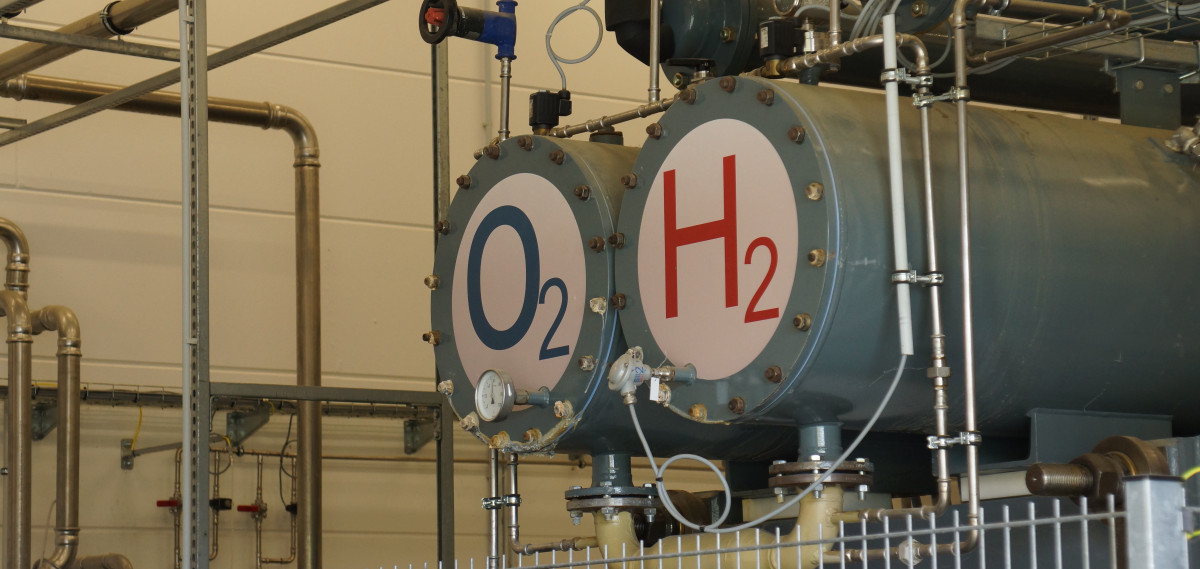German econ minister says hydrogen key part of future energy system
Hydrogen is set to be a key energy source in the future and indispensable in order for the German and other economies to become climate neutral, said German economy minister Peter Altmaier at a press conference in Berlin.
The economy ministry presented a report on the role of natural and renewables-based gas in Germany’s energy future. As hydrogen presented “enormous industry policy potential”, it is important that with the report the government now “sends the signal that Germany will become the global number one in hydrogen technology”, said the minister.
Altmaier included both renewable-power-based “green hydrogen” and “blue hydrogen”, which is won from natural gas by CO2 sequestration. This, however, then has to be stored. The debate on CCS (carbon capture and storage) has long been considered finished in Germany due to widespread opposition against the procedure in which carbon dioxide is compressed in underground storages. “The goal of greenhouse gas neutrality means that we will have to have this discussion within the coming years,” said Altmaier in Berlin.
His comments echoed remarks made by Chancellor Angela Merkel earlier this year. She had put CCS back on the table, saying the controversial technology was crucial for Germany to reach climate neutrality by mid-century.
“Natural gas will remain important element for many years”
The report follows a several-months-long dialogue with gas industry representatives. The dialogue “shows that natural gas will remain an important element of our energy supply system for many years”, said Altmaier.
In light of the planned coal and nuclear exit, the future role of gas in Germany's energy supply has become a crucial topic of discussion as it is less CO₂-intensive than oil and coal when burned. Natural gas currently covers almost a quarter of Germany’s primary energy consumption, mostly used for heating and cooling in households and public buildings and in industrial process heating systems.
However, to reach ambitious long-term climate targets, it would have to be gradually substituted with CO2-free or CO2-neutral gases, such as hydrogen. This can be used to store energy, as an energy source for sector-coupling, and in the transport sector, e.g. in fuel cell cars, or to make synthetic fuels, said Altmaier. The government is currently working on a hydrogen strategy and plans to present it before the end of 2019.
With the gas industry dialogue, the government “has underlined the importance of the energy source gas for the energy transition”, said local utility association’s managing director Katherina Reiche in a press release. She called the gas grid the “central infrastructure of sector coupling”, as it was both a place of storage and distribution of green gases.
Germany notifies European Commission of plans for first large-scale European battery cell project
At the same press conference, Altmaier also announced Germany had formally notified the European Commission of its plans for the first large-scale European battery cell production project, involving companies such as carmaker PSA with subsidiary Opel. The Commission has to approve the project under state aid regulations. The European Union allows state aid in certain conditions under its rules for Important Projects of Common European Interest (IPCEI).
Germany’s economy and energy minister Peter Altmaier last year set the target of covering 30 percent of global battery cell demand with production “in Germany and Europe” by 2030 to make the continent more independent from Asian imports.
“We expect that we will get the Commission’s approval before the year is out,” said Altmaier. Only then would the economy ministry announce all companies involved and the precise size of the project. “We can expect that at the latest by 2024 battery cells will be produced on an industrial scale also in Germany,” said Altmaier. He added that the government would notify the Commission about a second project “with more German companies involved” before the end of the year.


